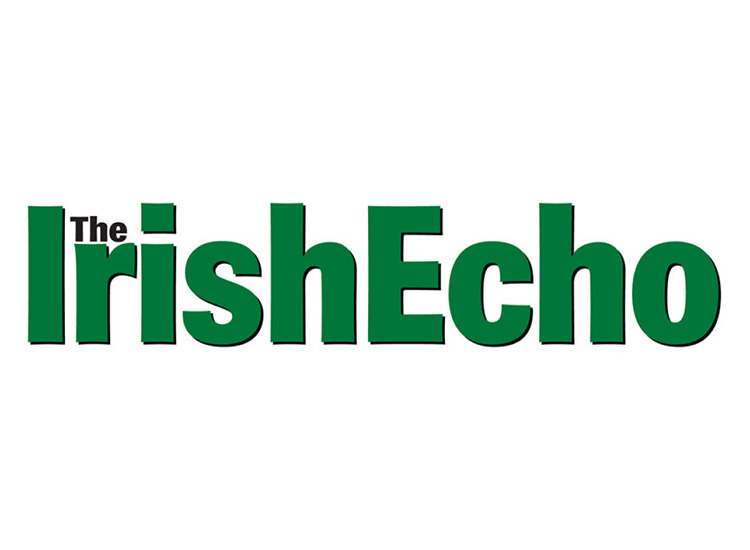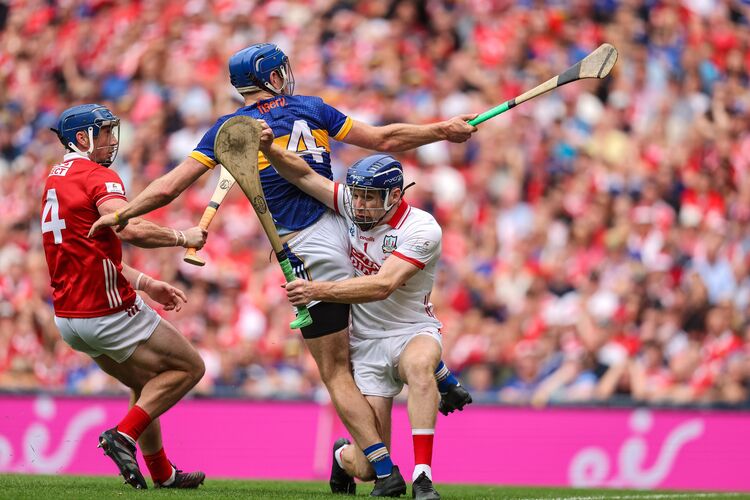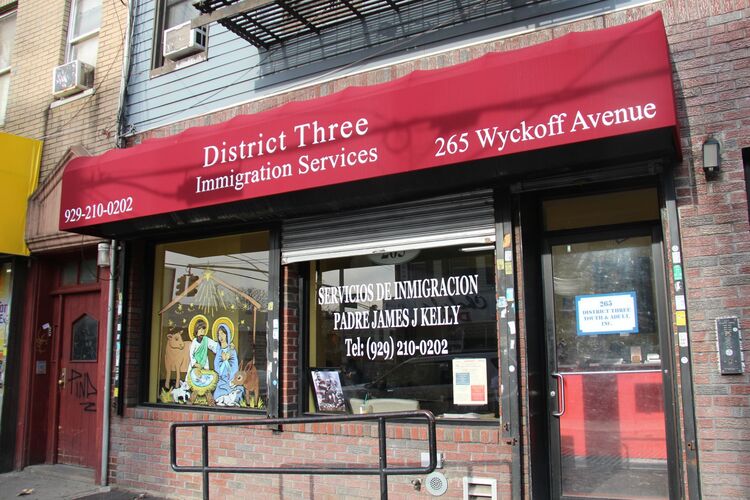Remember the surfeit of albums with the word "Celtic" or "Celt" in their titles? They bobbed like buoys in a slick-green sea swollen by post-"Riverdance" mania. The sound or, apropos of the period, the "soundscape" frequently comprised tracks of authentic traditional performance and other tracks reflecting the sensibilities of New Age, all with a sizable amount of acoustic instrumentation and familiar melodies, such as "Down by the Salley Gardens," "Mna na hEireann," and "Loftus Jones." I confess I had a direct hand in choosing the trad tracks and writing the liner notes for several "Celtic" or "Celt" compilations, including two pattern-setting ones: "The Celts Rise Again" in 1990 and "Celtic Odyssey" in 1993. The latter, a surprise best seller, spawned a whole slew of imitators from the mist-shrouded terrain between New Age and trad that helped to entrench, improbably, a different category, "world music," which remains amorphous. Another "Celtic" album for which I wrote extensive liner notes was unimaginatively entitled "The Celtic Album" (RCA Victor, 1998). It, too, was a best seller and featured the Boston Pops Orchestra under the baton of Keith Lockhart with such guests as Jerry O'Sullivan, Eileen Ivers, and Cherish the Ladies, led by Joanie Madden, who also had a showcase low-whistle solo on Gerard Fahy's "Magh Seola." The CD was nominated for a Grammy award as best classical crossover album of that year. What often gets lost in the reflexive pillorying of so-called Celtic New Age, which some critics regard as a contradiction in terms and revile as much as disco, is the enduring beauty of many of the melodies and the strong trad credentials of several performers. Am I defending all of "Celticdom" in music? Of course not. Much of it is execrable. But I also saw this trend as a chance for genuine and genuinely accomplished traditional musicians to earn some money and wider recognition denied them far too frequently in the past. Is this rationalization? Perhaps. I'm aware of the lingering rancor among some trad artists about a lack of royalties or proper accounting from certain record companies. But I know for a fact that some performers did benefit financially and/or professionally from this admittedly odd juncture in musical history. "Song of the Irish Whistle" and "Song of the Irish Whistle 2," solo albums made by Joanie Madden for the Hearts of Space label in the late 1990s, sold a hefty half-million copies, a total unmatched by any other Irish whistle player's releases. Amid the New Age-tinged strings, synthesizers, and wind chimes are Joanie's whistle and flute playing, Jerry O'Sullivan's uilleann piping, John Whelan's button accordion playing, and John Doyle's acoustic guitar playing. Those four trad virtuosos need no defending from me or anyone else. Besides, Joanie Madden's own Irish traditional music bona fides are unimpeachable. Born in the Bronx to a father, Joe (1938-2008), from Galway and a mother, Helen (nee Meade), from Clare, Joanie won All-Ireland junior championships on flute and whistle and, in 1984, became the first American to win the All-Ireland senior tin whistle title. Button accordionist Joe Madden had a tremendous influence on his daughter's musical development, which can be readily detected on the magnificent album they released together last year, "A Galway Afternoon," and Joanie's chief instructor at an early age, Jack Coen, would receive an NEA National Heritage Fellowship in 1991 for his outstanding flute and whistle playing and his tutoring of gifted emergent stars like her. What Mary Bergin is to the tin whistle in Ireland, Joanie Madden is to the tin whistle in America. Her solo album debut in 1994 for Green Linnet, "A Whistle on the Wind," is an outright trad gem, and her strong influence on whistle as well as flute is apparent in the playing of young trad students across the country. Joanie is also a superb composer. "Nuala's Bonnet" and especially "The Cat's Meow" are two tunes she's written that have been recorded by several other artists. In addition, she is one of the most business-savvy performers in Irish traditional music today. Her devoted, tireless, utterly masterful, quarter-century leadership of Cherish the Ladies has been crucial to that ensemble's unflagging global appeal. And such side projects as Pride of New York (a standout quartet including Billy McComiskey, Brian Conway, and Brendan Dolan), her unforgettable duet with her father on "A Galway Afternoon," and sundry guest appearances on other musicians' albums have only raised her profile further. Moreover, Joanie's showmanship on stage is second to none. Few Irish traditional musicians can hold a crowd in thrall with their concert comments as she can. A force of nature in performance, Joanie is a cynosure combining instrumental prowess with effervescent humor. Most importantly, she has a great heart, something I learned again when she took time out of her hectic schedule to perform gratis at the Joe Derrane tribute concert last November in Connecticut. Simply put, audiences love her and can't get enough of her. Attendees at the upcoming "Masters in Collaboration V" concerts by Joanie Madden with Kerry singer and button accordionist Seamus Begley in the cozy, 99-seat Donaghy Theatre of Manhattan's Irish Arts Center will see and hear her multiple talents up close. It is a rare opportunity to catch one of the finest Irish traditional tandems ever invited to perform in this series, the brainchild of Mick Moloney. I last saw Seamus Begley in concert on Dec. 11 at the Strand Center for the Arts in Lakewood, N.J., as part of Teada fiddler Oisin Mac Diarmada's "Irish Christmas in America" tour. Begley's playing of Kerry polkas, telling of jokes, and singing of "Oiche Chiuin" that led into a whimsical "Dingle Bells" were memorable highlights that night. To purchase tickets to the three "Masters in Collaboration V," Madden-meets-Begley concerts starting at 8 p.m. on April 15, 16, and 17 in IAC's Donaghy Theatre, call 212-868-4444. For free reservations to the April 13 live conversation with those two performers that Moloney will moderate, call 212-757-3318, ext. 202, or e-mail reservations@irishartscenter.org. The Irish Arts Center is at 553 W. 51st St. (between 10th and 11th Avenues), New York, NY 10019. Visit www.irishartscenter.org. Kevin Burke to tour soloThe musical partnerships in which fiddler Kevin Burke was or is a member are striking: Glenside Ceili Band, Lazy Reel, Christy Moore Band, Bothy Band, Patrick Street, Open House, Celtic Fiddle Festival, Tim O'Brien's The Crossing, and duos with guitarist-singer Micheal O Domhnaill, button accordionist Jackie Daly, and guitarist-composer Cal Scott. But as a strict soloist in concert, this 2002 NEA National Heritage Fellowship winner displays an inventiveness and resourcefulness nothing short of spellbinding. (Disclosure: I wrote a lengthy essay for the 30th anniversary edition of Burke's 1978 solo album, "If the Cap Fits.") Kevin Burke will be performing unaccompanied on these dates in these venues: 8 p.m., Wed., April 13, at An Beal Bocht, 445 W. 238th St., Bronx, N.Y. (718-884-7127); 7:30 p.m., Thurs., April 14, in a house concert sponsored in Redding, Conn., by the Shamrock Traditional Irish Music Society (for exact location, call 203-256-8453 or e-mail tmquinn@optonline.net); 8 p.m., Fri., April 15, at Rosendale Cafe, 434 Main St., Rosendale, N.Y. (845-658-9048); 8 p.m., Sat., April 16, at Elysium Arts Folk Club, Lower Mill at Salmon Falls, Rollinsford, N.H. (603-743-4700); and 6:30 p.m., Sun., April 17, at Four Green Fields, 1 Boston Place, Boston, Mass. (617-367-4747).








